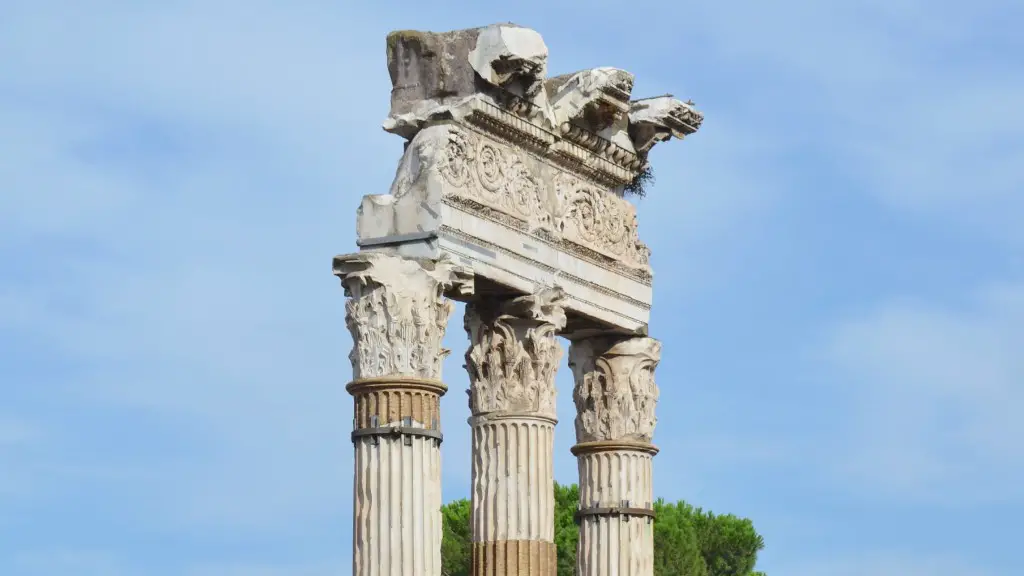Who is Livia in Ancient Rome?
Living in a world of almost total male domination, with the Roman Senate consisting of 200 men who held full authority over its citizens, Livia’s rise to power was extraordinary for its time. Livia was a highly influential a Roman noblewoman and wife of the first Roman emperor Augustus. As his wife and also mother to his beloved heir, Tiberius, Livia gained an unprecedented amount of power and authority over everyday events in Rome – privately at her husband’s side but also publicly in her own right.
Augustus often gave public approval to Livia, and in Statue form she was quite commonly seen alongside him. One of the earliest depictions of her is in an equestrian statue of her and Augustus thought to have been created in 13–9 BC. This equestrian portrait was made possible through the approval of Augustus, who actually dedicated part of the Forum of Augustus to it.
Livia was also included in the Senate as well as various other statues during her lifetime. This wasn’t necessarily because of her influence on her husband but because she had become a well-known figure in and out of Rome, and she had developed a good reputation among the common people. Livia was known as an extremely intelligent, and her quick wits were often cited during certain events in Roman History.
Livia’s legacy as a powerful woman of Roman history has been somewhat entangled by perpetuation of cruel rumors about her by later writers. Several surviving accounts by ancient Roman historians gives Livia credit for her political skills and her cleverness, but several writers from later centuries reported that Livia had the death of people who might have been in line for the throne of Rome. However, the truth is that there is no available record to prove or disapprove any of these claims and there is no evidence of Augustus’s involvement in any of the alleged murders, suggesting that the accusations may be simply a fabrication by latter-day authors.
To this day, Livia remains an influential figure in Roman history. She is an example to modern women of a woman who, in spite of being surrounded by a patriarchal society, was able to break gender barriers and build a position of power that we, today, can still look up to. After Augustus died and Livia assumed the title of Augusta, or “great lady,” her influence was further recognized in her own right, as she was granted the power to intervene in public affairs, resulting in her being named “Mother of the People” and revered as a goddess.
The Legacy of Livia
Though it has been almost 2000 years since Livia lived in Rome, her legacy has been remarkably strong. Many Roman monuments and coins continue to depict Livia as a strong, intelligent woman who was empowered by her husband and gained influence because of her own merits. She was also given a statue in Rome, dedicated to her as Pietas and Fides, which symbolized her devotion and loyalty to Augustus.
As a figure of power and influence during an era of male domination, Livia serves as an inspiration to women worldwide. In the modern day world, Livia is often discussed in a political context due to her ability to maneuver and get things done even in a male dominated society and government. During her lifetime, she acted both as a wife and a mother, but her power and influence did not derive from her husband alone. She was able to make an impact through her own actions and to demonstrate the potential of a female leader.
Impact on Popular Culture
Livia has had an immense impact on popular culture, with her name and story appearing in various works of literature and movies throughout the centuries. In literature, she is often depicted as a powerful, ambitious character intent on seizing the throne of Rome. This is particularly true in Seneca’s “Octavia,” where Livia is portrayed as the vilest of villains; a cold-hearted, power-hungry individual hell-bent on destroying any who stand in her way.
In movies and television, Livia is portrayed in a much more sympathetic light. Many popular films, such as “The Eagle of the Ninth,” “Gladiator,” and “I, Claudius,” have featured Livia as a multi-faceted character with her own desires and ambitions. She is often portrayed as a cunning but benevolent ruler who is willing to do whatever it takes to ensure the survival and prosperity of Rome. This has endeared her to modern audiences and helped to ensure her place in popular culture.
Legacy of Leadership and Influence
Overall, Livia’s legacy is one of leadership and influence. She was a woman of remarkable intelligence and ambition, who lived in a world dominated by men but managed to make her presence felt despite the odds. She was an example of how a woman can rise up to the challenge and succeed in a male-dominated society. As a result, she is often revered as a powerful leader and an important example of the potential of female power. Furthermore, her name and story continue to inspire filmmakers and writers to bring her story to life.
Conclusion of Influence on Modern World
Despite the eventual destruction of the Roman Empire, Livia’s influence on the modern world remains strong. Her story of overcoming the odds and becoming a powerful woman in a male-dominated society has inspired many people to strive for success in their own fields. Her example of shrewd political maneuvering and ambitious leadership have been studied by modern academics and politicians alike. Therefore, her legacy continues to live on and serves as an example for future generations.
Influence on Roman Female Role Models
Livia’s life and actions provided a concrete example of the potential of a woman in a patriarchal society, and her impact on Roman female role models was considerable. Women in Rome began to push the boundaries of their traditional role in the wake of Livia’s success and many women would go on to achieve more than they may have thought possible before her influence. Female Roman figures, such as poet Sulpicia, dissident Sextia, and philosopher Sirena, were able to make their mark on Roman society as a result of Livia’s example.
Accomplishment Despite Opposition
It is obvious that without the support of Augustus, Livia would never have achieved the power and influence she did, yet she was able to make a name for herself despite male opposition and patriarchal laws. She overcame these obstacles due to her sure footed intelligence, sharp wit, and great beauty. Her legacy serves a constant reminder to modern women of the power of courage and determination. Livia remains an inspirational and admired figure in both Roman and modern times.
Public Opinion of Livia
Public opinion of Livia’s life and deeds varied greatly throughout her lifetime. As mentioned earlier, many Roman historians wrote of her in a very positive light, crediting her with her husband’s success, however, later writers from outside Rome painted her as a villainous figure. Posterity seems to have sided with the former group, having celebrated her as a great woman for centuries. The modern world views her not only as a powerful figure in her own right, but also as a symbol of overcoming the odds to achieve greatness in an oppressive system.
Contribution to Roman Women’s Rights
Livia is an inspirational figure to all women, even in the modern day, as she was a major contributing factor to Roman women’s rights. She popularized the concept of female autonomy and power even in a male-dominated world, and her legacy is one of strength and perseverance in the face of adversity. Her influence on the Roman Empire, and society’s perception of women, was tremendous, and she served as an example to women of all times to stand up for their rights and fight for their independence.




